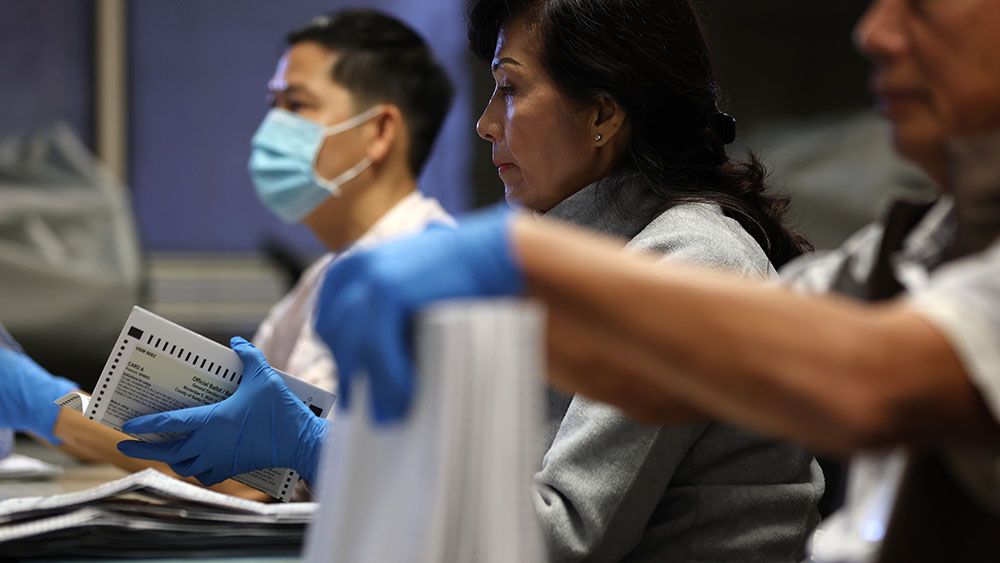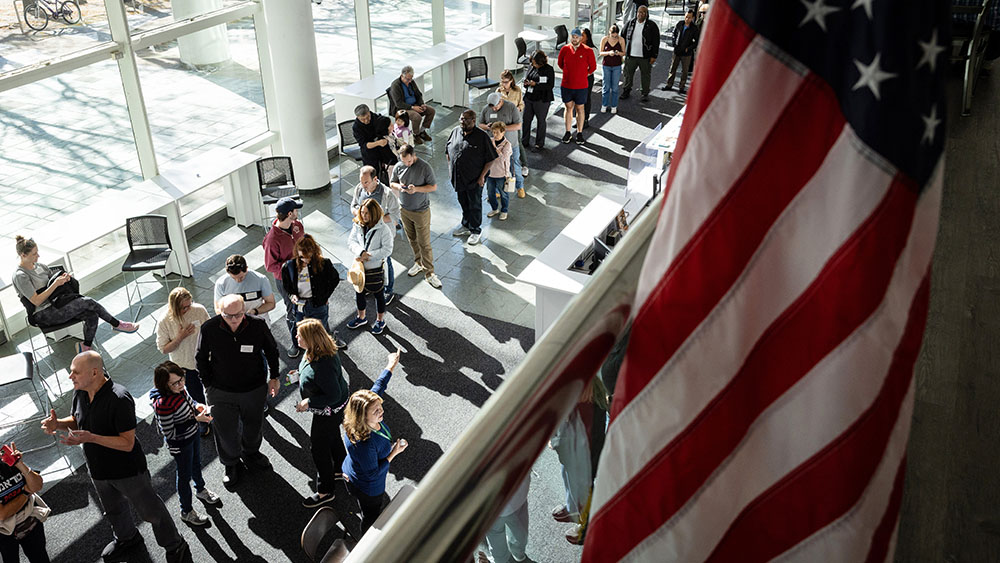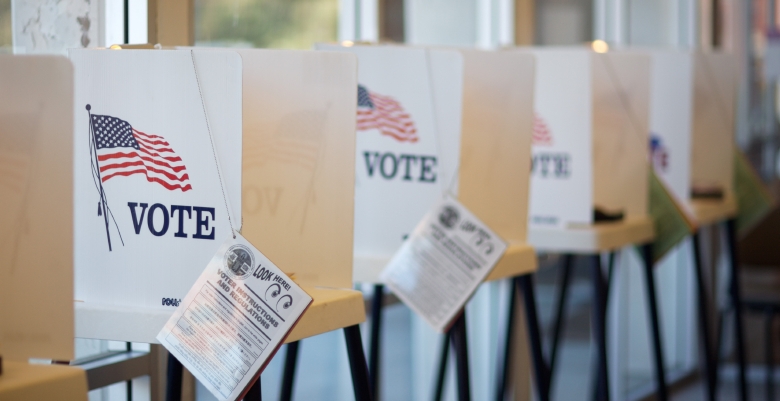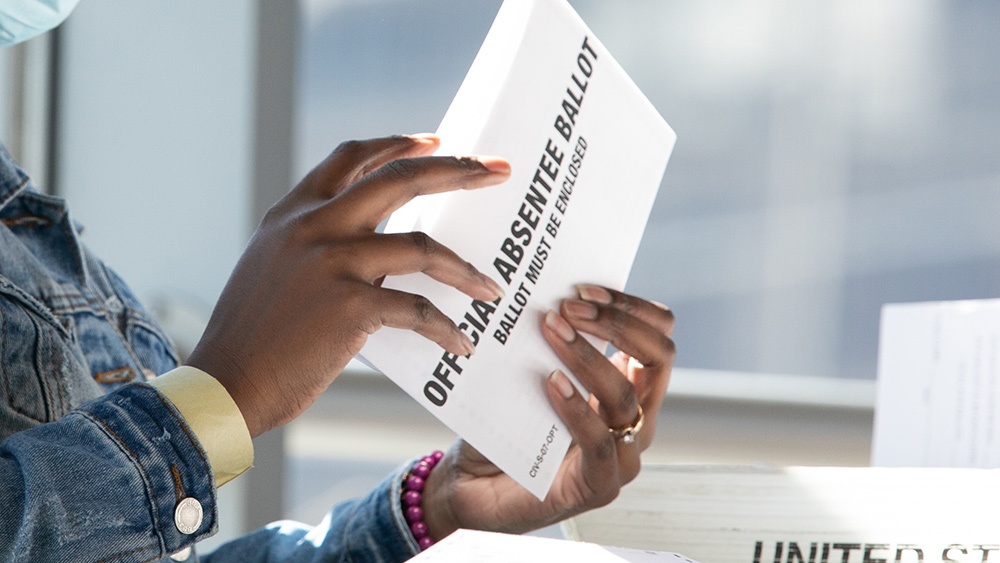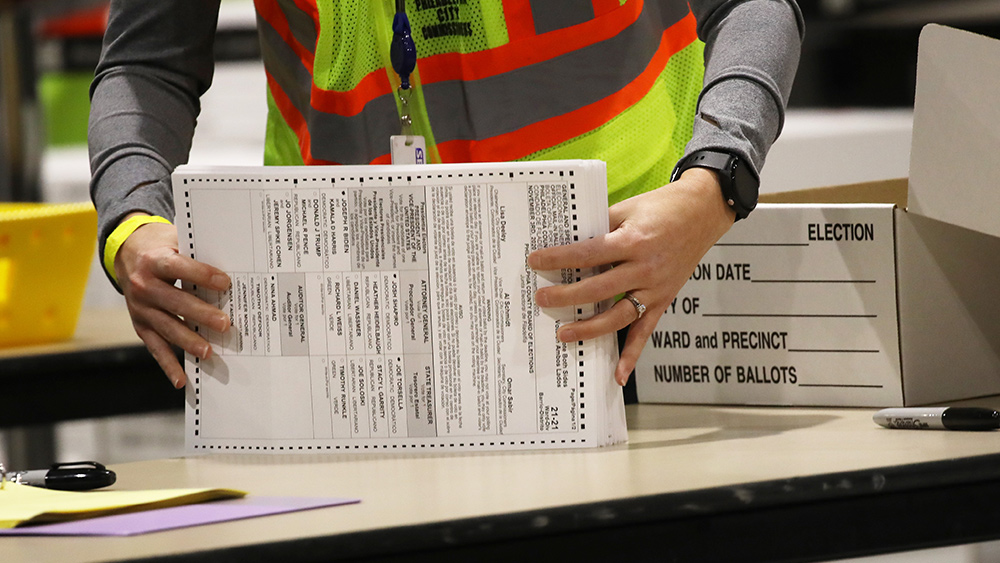
Over 781,000 absentee ballots have been cast in Michigan so far, according to the top election agency in the crucial swing state.
Michiganders have been returning absentee ballots since Sep. 26, in accordance with the 40-day absentee voting period for all state voters. As of Oct. 16, the tracking tool set up by the Michigan Department of State reported receiving 781,534 absentee ballots, with over 100,000 of those being returned in the past 24 hours.
Michigan has received 2.1 million requests for absentee ballots, according to data released by Secretary of State Jocelyn Benson's office. This means that over 37 percent of absentee ballots have already been returned.
In Wayne County, which includes Detroit, about 343,000 people have voted absentee so far, representing about 84 percent of the mail-in ballots requested.
The Michigan Department of State said in an Oct. 15 statement that 2,133,272 Michigan residents have requested a mail-in ballot. This is far less than the approximately 2.85 million residents who requested mail-in ballots in 2020.
The current rate of return for absentee ballots is also lower than around this same time in 2020. Three weeks out from the 2020 election, nearly one million of the 2.85 million absentee ballots had already been returned.
Polls indicate Trump is ahead in Michigan
In 2020, election officials in Michigan certified the election for Democratic presidential candidate Joe Biden, who was officially reported to have 2,804,040 votes, over Republican candidate President Donald Trump, who received 2,649,852 votes. Trump, meanwhile, was declared the winner of Michigan in 2016 over former Secretary of State Hillary Clinton by an even more narrow margin of around 10,000 votes.
Political forecasters and polls have again signaled that Michigan, with its 15 electoral votes, will be a key state to win on Nov. 5 in Trump's third run for the White House against Vice President Kamala Harris.
Virtually every single major polling and political analysis firm has declared Michigan a "tossup," along with the six other major swing states Arizona, Georgia, Nevada, North Carolina, Pennsylvania and Wisconsin.
Several recent polls show that Trump and Harris are neck-and-neck in Michigan, including a survey from AARP, formerly the American Association of Retired Persons. The two candidates, in that poll, are tied at 46 percent apiece. A previous poll from the group in August showed that Trump had 45 percent and Harris 43 percent.
A poll from the New York Times and Sienna College showed Harris and Trump as practically tied in Michigan. A poll from Quinnipiac University showed that Trump took a three percent lead in Michigan.
Trump has been campaigning heavily in the state, including in the traditionally Democratic stronghold of Detroit, with his campaign focusing on high inflation and its impact on groceries and gas prices and Michigan's automotive industry. (Related: Michigan auto workers blame Biden-Harris EV mandates for industry job cuts.)
Trump's strong campaigning in the state has whittled away at the advantage Harris had in Michigan just a few months ago. With just weeks to voting day, Trump's supporters believe that the trends are in his favor and he could retake Michigan from the Democrats.
Visit BigGovernment.news for more stories regarding the U.S. presidential election.
Watch this clip from Fox News discussing how the Democratic Party is "freaking out" over Harris' inability to connect with voters in Michigan.
This video is from the NewsClips channel on Brighten.com.
More related stories:
Poll: Donald Trump leads Kamala Harris in Michigan after presidential debate.
New poll: Donald Trump takes narrow lead over Kamala Harris in Michigan.
Sources include:
Please contact us for more information.














